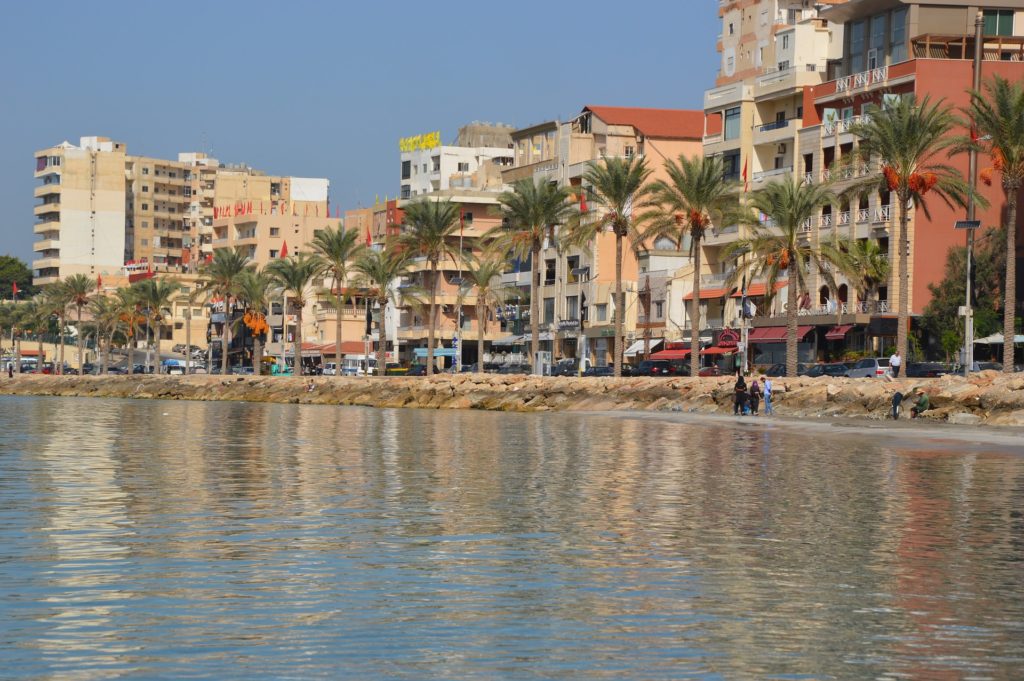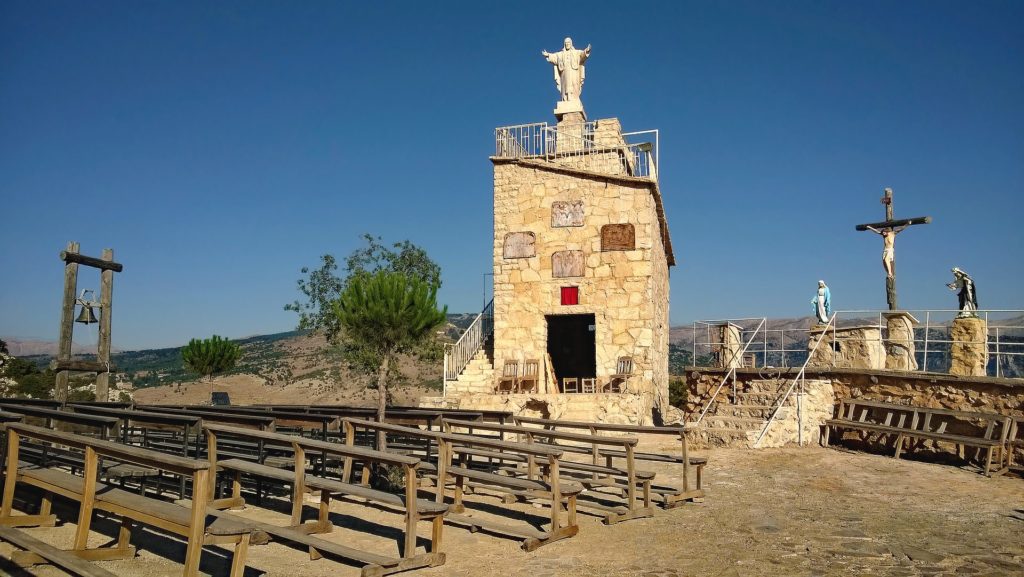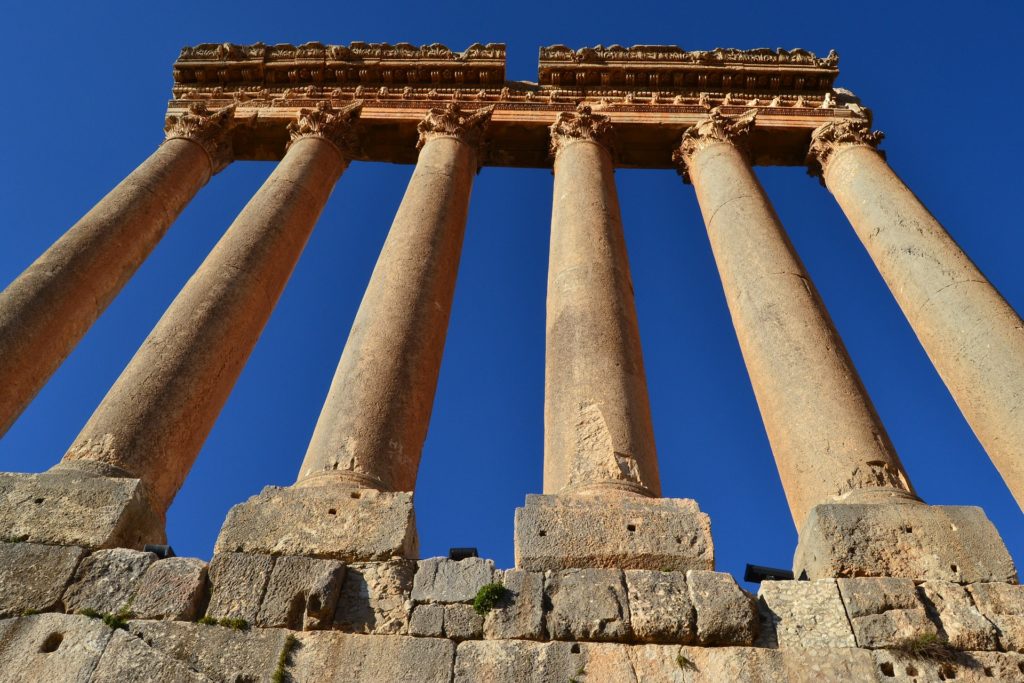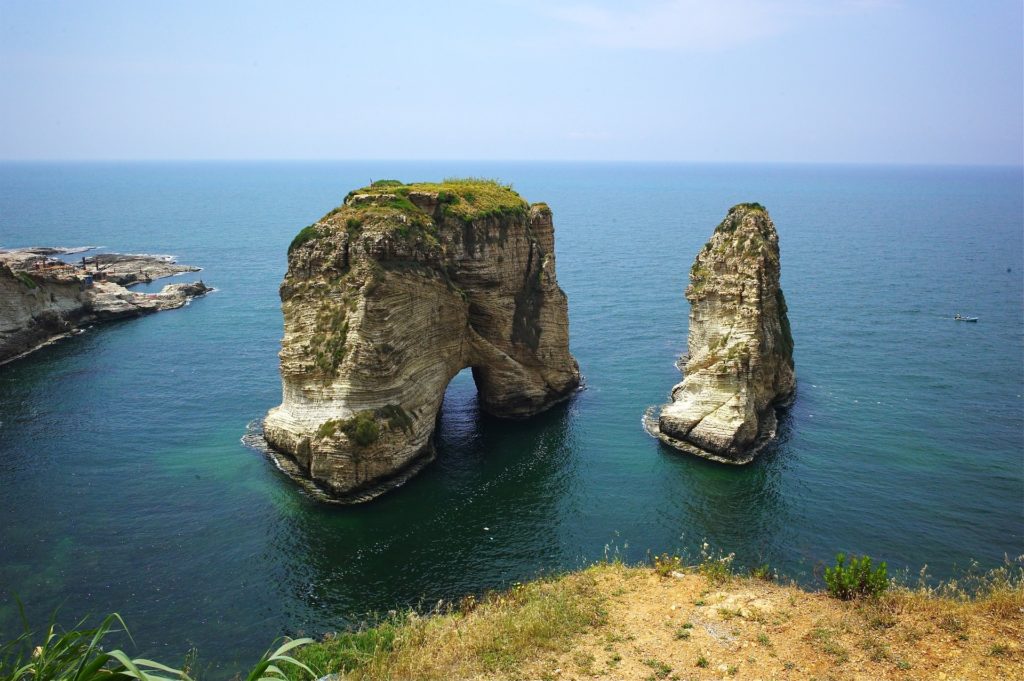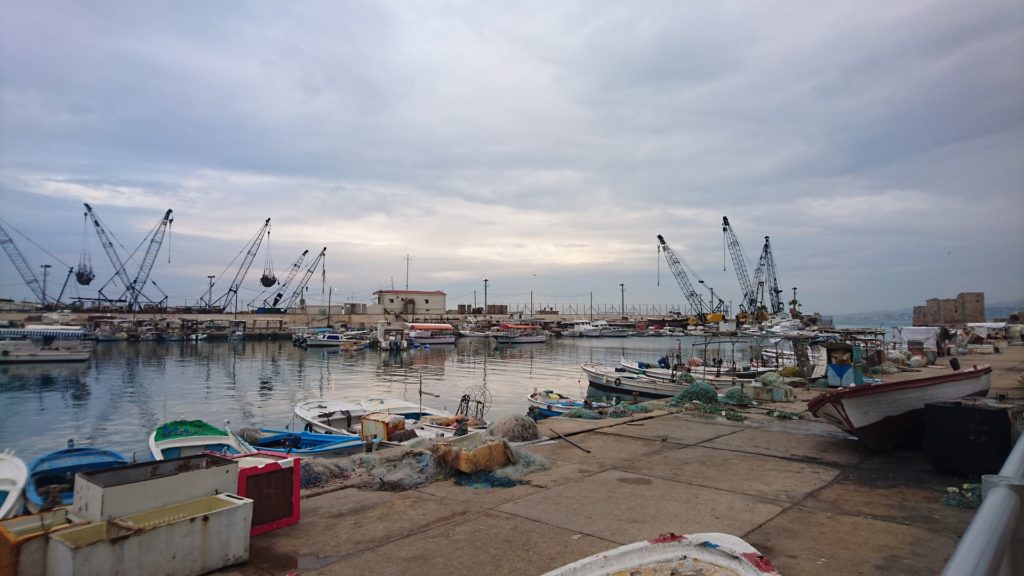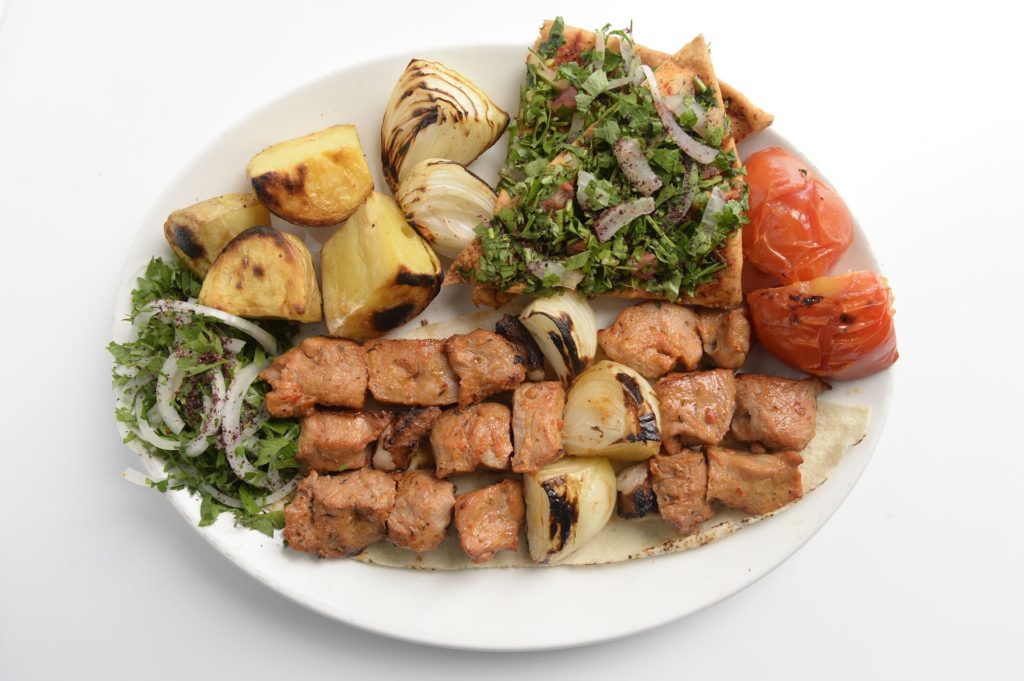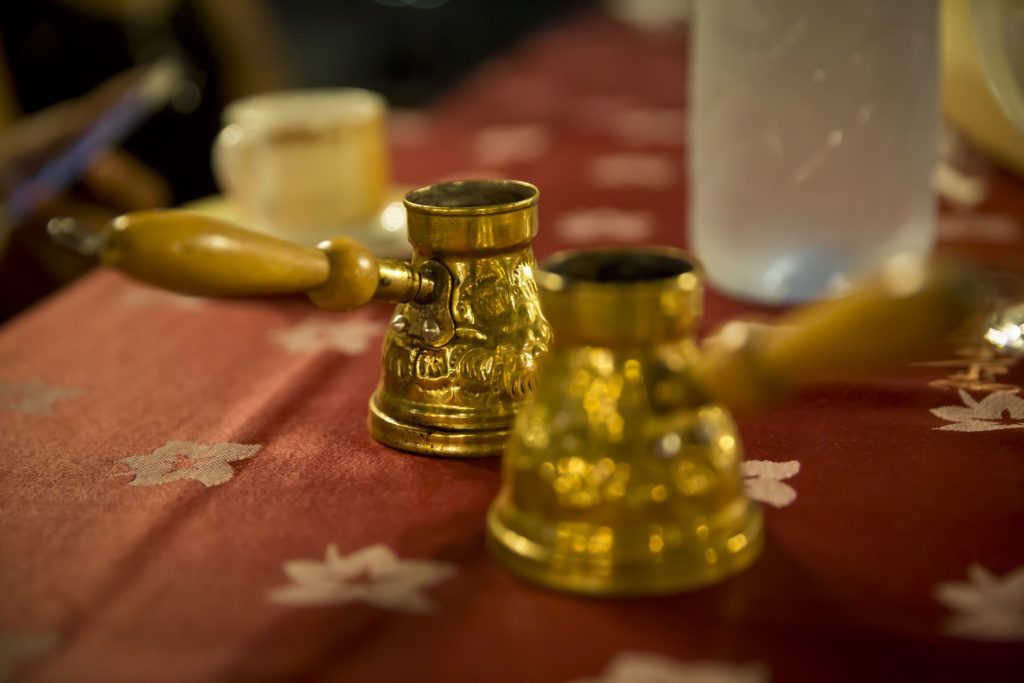Backpacking in Lebanon
Lebanon – like the entire Middle East – many backpackers do not even have their “bucket list” yet. This is mainly due to the political instability in the entire region. Lebanon itself, however, has not been a war zone since 2006 and is currently the most peaceful country in the Middle East. Although backpacking in Lebanon is comparatively expensive, it is worth the trip to this small country on the south-eastern edge of the Mediterranean! Backpackers profit from the warmth and hospitality of the Lebanese and from the rich culture and varied history. This has not only left traces of the war, but also countless cultural monuments from different eras. In addition there is the partly impressively beautiful nature of the country.
The infrastructure in Lebanon is basically good – with buses and taxis you can get everywhere. Especially in the bigger cities you have internet access everywhere and there are countless internet cafés.
The national currency is the Lebanese Pound (LBP). The exchange rate to the US dollar is fixed and is 1 USD = 1500 LBP. One can pay almost everywhere also with US Dollar. At the ATMs you can easily withdraw cash, partly also in US dollars.
Also the language barrier in Lebanon is comparatively low: The official language is Arabic, often Lebanese Arabic is spoken, which is quite similar to the Arabic of the surrounding countries Syria, Jordan and Palestine. Due to colonial history, a large part of the population still speaks fluent French, but today English is more widespread, especially among the younger Lebanese. English and French can be understood quite well throughout the country.
Culture in Lebanon
Lebanon has 6.2 million inhabitants, spread over a rather manageable total area of 10,500 square kilometres. It is also a relatively young country: according to Indexmundi, just under 45% of the total population are between 25 and 54 years old, and only 6.6% are 65 years or older.
In addition, the country is not topographically but culturally enormously diverse. This is because various cultures have left their mark on Lebanon since ancient times. From an ethnic point of view, 95% of the population are Arabs, 4% Armenians. However, these figures conceal the actual heterogeneity of the population. Many Arab Christians do not see themselves as Arabs, but as descendants of the Canaanites and call themselves Phoenicians.
In religious terms, the diversity of the population is much clearer: 54% are Muslims, 27% of whom are Sunnis and 27% Shiites. Another 40.5% are Christians. However, these are divided into Maronite Catholics, Greek Orthodox, Greek Catholics and other Christian subgroups. 5.6% are Druze.
You will encounter this diversity in culture everywhere in Lebanon when backpacking – because depending on who you are visiting and where you are staying, you will experience very different customs, values and beliefs. This is one of the great advantages of a visit to Lebanon, especially if you choose a type of homestay (e.g. Couchsurfing or Airbnb): You experience this diversity with all its contradictions very closely.
If you want to understand this cultural diversity, which of course also holds an enormous potential for conflict, you should read into the topic in advance. Conducting talks about politics and religion is not an option in Lebanon. This is less because people do not want to talk about their culture. But the wounds from the civil wars 1975-1990 and 2006 are far from healed – and the country is still today too much involved in the political-religious mixture of the Middle East.
Very courageous travellers try to explore on their own initiative places that are otherwise taboo for travellers, for example the Hezbollah-dominated districts of Beirut, Palestinian refugee camps or the border with Israel. However, you put yourself in danger without having a real chance to talk to people about their situation.
So such an excursion usually remains a fleeting visual impression, which often doesn’t inspire the people living there either. Who would like to be seen in its precarious location by tourists who find it somehow exotic and exciting? Therefore, you should consider whether such an “excursion” is appropriate – unless, of course, you actually know someone on the spot or are at least accompanied by a local.
Backpacker Route in Lebanon
Due to the restrictions on travelling in Lebanon (see “Restrictions on travelling in Lebanon” below), many backpackers see little more than Beirut and the surrounding area. However, one can travel to many regions, such as the Bekaa plain, even if there are current travel warnings here as well. Other routes – such as the connection through the Bekaa plain to Syria – are currently completely closed anyway for safety reasons. In general, it is of course advisable to pay attention to current safety instructions before departure, but also in the country, so that you are always safe on your way.
Route 1: Lebanon for those in a hurry (7 days)
- 2 days Beirut – discover the capital, its cosmopolitan culture and visit the National Museum
- 1 day Baalbek – follow in the footsteps of the Romans
- 1 day Jeita Grotto – one of the most impressive caves in the world (one of 14 finalists of the 7 New Wonders of the World)
- 2 days Jounieh – trip with the Téléphérique to Harissa, visit “Our Lady of Lebanon”.
- 1 day Beirut – to end the day
Route 2: Lebanon intensive (approx. 14 days)
- 3 days Beirut – National museum, Pigeon Rocks (rock formation in the sea) and
- 5 days Bekaa Plain – Baalbek, Zahle, Aammiq Swamp
- 1 day Jeita Grotto – experiences one of the most impressive caves in the world
- 2 days Jounieh – drive with the Téléphérique out to Harissa and enjoy spectacular views
- 3 days Tripoli – Visit of the old town (Suq), the harbour and the Palm Islands Nature Reserve.
- 1 day Beirut – once again really good food & walk on the waterfront promenade La Corniche
Travel times in Lebanon
Although the state of Lebanon covers an area of only about 10,500 square kilometres, it covers four climate zones. This is due to the topographical structure of Lebanon.
The coastal region is characterized by a Mediterranean climate. In the mountain ranges of the Lebanon Mountains, the Anti-Lebanon Mountains and the Hermon on the border with Syria and Israel, the mountain climate prevails. The Bekaa plain, which is surrounded by the Lebanon and anti-Lebanon mountain ranges, has a continental climate. In the border area to Syria it is extremely dry, the steppe climate changes here into the desert climate, which is characteristic for Jordan and the south of Syria.
The entire coastal strip – including the capital Beirut – is dry and hot in summer, but extremely humid in winter. In the mountains, too, most precipitation occurs in winter, but due to the altitude in the form of snow, which can remain until late spring. In the Bekaa plain, winter is not as humid as in other regions. Due to a strong wind, however, it is not particularly attractive for most travellers there in winter.
Between March and May is the optimal travel time, especially for Beirut and the coast – it is warm, and spring lets the landscape blossom. Between June and September you can travel anywhere in Lebanon, but it is also very hot. Beirut and the coast can be travelled well into November.
Restrictions on travel in Lebanon
Unfortunately, the ongoing Syrian conflict is currently having a negative impact on the security situation in Lebanon. Therefore you should read the current political events and security warnings before your departure and also at any time, while you are in the country. On the pages of the Federal Foreign Office you can check at any time which regions should not be visited at the moment.
In Lebanon there is generally a certain danger of terrorist attacks. These can also be directed against western foreigners. Travel warnings currently affect the regions of Akkar, Minieh-Danniyeh and Tripoli, i.e. practically the entire north of Lebanon. All refugee camps should be avoided (especially Nahr al-Bared, Beddawi, Ain al-Helweh, Mieh Mieh).
In the border areas with Syria there is an increased risk of kidnapping for foreigners. At present, travel to the Bekaa plain is discouraged in particular. The southern suburbs of Beirut (Dahiye) should also be avoided. Travel south of the Litani including the border area to Israel is also strongly discouraged. Only the city of Tyros is considered safe here.
If you want to follow all these safety instructions, there is hardly any room for backpacking in Lebanon at the moment. Ultimately, these safety instructions from the Federal Foreign Office are of course only recommendations. However, it is possible that the Federal Government will or can only act to a limited extent for foreigners who have been arrested or kidnapped in the country. So you would be well advised to take these safety instructions seriously.
Backpacker Trips & Tips in Lebanon
Backpacking in Lebanon means getting involved in a diverse and hospitable, but also crisis-ridden country. Expect to deviate from your original travel plans if something unforeseen happens and a trip to a particular region is not advisable. Nevertheless: As a visitor, one should not miss some highlights and insider tips.
Backpacker Highlights in Lebanon
One of the absolute highlights of backpacking in Lebanon is exploring the capital Beirut. Beirut is not only considered to be the Paris of the Orient – unfortunately with more bullet holes than the French metropolis – but is also one of the most liberal and intellectual cities of the Middle East.
In Beirut you should definitely visit the Mar Mikhaël district – this is where the creative scene meets, where you will find cool cafés and other great locations. Armenia Street is the promenade par excellence in Beirut. You shouldn’t miss the harbour promenade, La Corniche, either.
In Beirut, a visit to the National Museum is a must. It shows countless exhibits that reflect the entire history of Lebanon from prehistoric times to the 19th century. The museum itself is also a sign of reconstruction. After the civil war, the building was in a disastrous state and the exhibits were also severely damaged. Between 1995 and 2000 the building and the exhibits were extensively restored.
A trip to Lebanon is not complete without a trip to Baalbek. There are impressive remains of Roman buildings. The best way to explore Baalbek is with a local guide. For about 100 USD a driver takes you from Beirut to Baalbek to the Roman ruins. This excursion can easily be organized as a day trip if you don’t want to spend more time in the Bekaa plain anyway.
About 20 km north of Beirut is the Jeita Grotto. Even those who normally have little time for caves should not miss the visit of this really impressive grotto. For 12 USD entrance fee, one gets a guided tour through the upper cave, the drive into the lower cave as well as the possibility to do a small boat tour there. Around the cave there are many other things to explore – gardens, sculptures, a mini zoo and much more.
Backpacker insider tips in Lebanon
Since Lebanon is anything but a tourist overcrowded destination, there is a lot to discover here – there is something for every type of backpacker.
Very worth seeing is the silk museum in Bsous, about 12 km from Beirut. Amidst picturesque scenery and surrounded by a beautiful garden you have the opportunity to relax from the concrete charm of Beirut. The museum itself offers a great exhibition about the history of silk and the Silk Road. But it also shows the whole process of silk production – from silkworm breeding to the finished garment.
For landscape and nature lovers, an excursion into the Aammiq swamp is indispensable. This wetland has been a UNESCO Biosphere Reserve since 2005. It is one of the last remains of a floodplain landscape that originally shaped the Bekaa Valley. The Aammiq Swamp is also home to numerous birds that can be observed here.
The beaches in and around Beirut are usually not very attractive for swimming: Mostly stony and heavily polluted, there is only the way to the Beach Club. This offers – for an entrance fee – a pool at the Mediterranean Sea with a bar where you can swim. Quite cool, but little natural. Those who really want to swim in the sea drive north to Batroun, about 50 km from Beirut. Jammal’s Beach is the most beautiful beach with several open grottos. Access is free if you book a table at the local fish restaurant.
Backpacker Budget in Lebanon
Although Lebanon is not a tourist magnet due to its crisis-laden history – or perhaps because of it – travelling in a country with a small budget is a challenge.
The reason: A large part of the (few) travellers coming to Lebanon are rich, mostly younger people from the Arabian Peninsula. In particular, they come to Beirut and the coast to celebrate and bathe. They bring a lot of money with them and spend a lot of it – and so a club and hotel scene has emerged that has specialised precisely in this target group. Accordingly, the country is not geared towards backpackers with a manageable budget, especially when it comes to accommodation.
One can eat, drink and also be on the way relatively favorably locally – who would like to sleep however comfortably and would like to eat also times well in the restaurant, should plan however already a daily budget of 75-100€ inclusive overnight accomodation. Very thriftily should count at least on approximately 30 ? per day – with bed in the dormitory, favorable meal, bus travels and without larger extras for trips and entrance fees.
Rental car in Lebanon
Getting a rental car in Lebanon is possible without any major problems. For one week you get a rental car from about 100 €. All major car rental companies such as AVIS and Budget are represented in Lebanon.
However: Travelling with the rental car in Lebanon can be quite exhausting if you are not used to the driving style of the Lebanese. Although most roads on the coast are in a relatively good condition. In the hinterland it looks different again. In conurbations like Beirut, the roads are constantly congested – and if you get your way, you drive.
There are no traffic lights and right of way rules are not observed. Outside the larger cities, especially in the mountains, driving in the midst of locals often takes a lot of getting used to. In addition, the roads are usually not signposted. It should also be noted that petrol prices in Lebanon are relatively high. Although petrol is easy to obtain, these prices are the first to rise significantly in the event of a crisis.
The best alternative is to rent a car with a driver. You get these from about 60 € per day. Here it is worthwhile to inquire beforehand – or to ask around locally, if you stay a little longer in Lebanon and the car tour does not have to start immediately.
Public transport in Lebanon – Taxi driving in Lebanon
Taxis are a good, but not always cheap way to get around Lebanon. Within Beirut they are ideal, overland buses are the better, if not cheaper, choice.
Especially within towns, so-called “service taxis” are often offered. These mostly travel on fixed routes, similar to buses. Depending on the size of the vehicle, up to four or up to six people share a taxi. The costs are divided by the number of passengers.
The usual price is around and at 2000 LBP for intra-urban connections. However, this can also change and depends on the distance. Moreover, like almost everything else in Lebanon, the price is also a matter for negotiation. The price should always be negotiated in advance.
Private taxis are of course also available. The price is also a matter of negotiation here. But it is about the same as a “fully loaded” service taxi. For a limousine with four seats one pays thus quasi for four persons. There are also taxis that can be pre-ordered by telephone. These taxis can not stop on the street, react as not to waving. In addition, there are also Uber in Beirut, whose vehicles you can alternatively also use.
With foreign travellers there is always the latent “danger” that usurious prices are demanded on the part of the taxi drivers. This is especially true for renting a taxi at the airport. If you want to be on the safe side, you should research Taxifarefinder in advance, which is a usual price for the corresponding route. For the distance from the airport Beirut to the city, many tourists pay about 35 USD and even more. But for the approximately 7 km long distance to the center, 20 to 25 USD are normal.
At the airport you shouldn’t let the taxi drivers shouting loudly talk you into a ride directly in the arrival area. The prices there are always higher. Unfortunately, there are also “black sheep” who agree on a lower price, but then pass you on to the actual taxi driver, who does not want to know anything about the price. It is easiest if you ask your hostel or hotel in advance to send someone to pick you up.
In addition, you should always make sure that these are official taxis with which you travel. You can recognize them by the red number plates that official buses also have.
Buses in Lebanon
Besides taxis, buses are the main means of transport in Lebanon. The fares are cheap and for longer distances like the one between Beirut and Tripoli they are around 3 USD.
It is not always comfortable to travel with them, but you can get through the country easily. The buses run frequently, but there are no fixed bus schedules. Usually the buses depart when the seats are all or almost all occupied. Since most Lebanese travel by bus, it doesn’t take long – after 15 or 20 minutes at the latest, the bus usually leaves.
Finding the right buses is an immediate challenge. Most buses that run north from Beirut run from Charles Helou Bus Station (east of the city centre) and from the Dora roundabout. South and east, towards Damascus and towards Baalbek, most buses depart from the Cola roundabout.
The signs with the route can be found in the Lebanese buses mostly on the back window. But just to be on the safe side: Always ask the bus driver when getting on if the bus is really on its way to your destination. By the way, buses can usually be waved along the route like taxis to stop.
Domestic flights in Lebanon
With a north-south extension of just about 200 km and an east-west extension of no more than 100 km, domestic flights in Lebanon are not really relevant for travellers. There are also no regular scheduled domestic flights.
Rail travel in Lebanon
The railway – one of the favourite means of transport for backpackers – is omitted as an option in Lebanon: the country has a rail network in principle, but due to the difficult political situation there are no trains in Lebanon for a long time.
Backpacker accommodations in Lebanon
As already mentioned: staying overnight in Lebanon is not quite cheap. Those who love luxury will undoubtedly find what they are looking for – at least in Beirut. For backpackers, however, it is not so easy to find overnight accommodations that can be covered by a clear budget.
Hostelworld.com offers a good overview of hostels in Lebanon. However, these are mainly in Beirut. The average prices for an overnight stay in the hostel (bed in the dormitory) are approximately 24 € per night.
If the budget is not quite so tight, middle class hotels are therefore a good alternative. Here your private room starts from 45-50 €, and you can find it all over the country.
If you really have to look for money, you should switch to couchsurfing if necessary. The scene is quite active in Lebanon and especially in Beirut. Cheap Airbnb accommodations are also available throughout Lebanon, especially in the vicinity of touristically attractive areas. Here the average prices are 69 € per night, but there are also many attractive accommodations for well under 50 €.
Camping in Lebanon is also possible. Most campgrounds offer chalets and comparable accommodation as well as pitches for your own tent. If you bring your tent and pitch it, you pay around 5-7 € per night.
Food & Drink in Lebanon
Do you also love to go on a culinary voyage of discovery in foreign countries? Then Lebanon really has a lot to offer you. Depending on what your senses desire, you can get quite cheap streetfood in Lebanon (budget approx. 10-15€ per day) or even dine in upscale restaurants. However, the prices there are on a Western European level, but there are also really no culinary wishes left open.
When eating out in Lebanon, there are a few things to keep in mind that are due to the local culture. First of all: As in many Asian countries, it is unusual to eat alone and food is always ordered at the table for all those who are shared. So if you go out alone, you’re not only noticing something stupid, you’re also having trouble ordering something: The portions are basically designed to be divided into several.
Anyone who goes out with Lebanese people or is invited to their home should also pay attention to some cultural rules. However, these are quite different, depending on whether you are with a Christian or Muslim family and how conservative it is. As a rule of thumb, people beyond the metropolises are much more conservative. The best thing to do is simply to follow the example of your hosts, so that you avoid the biggest fat cups if possible.
To be on the safe side, you should always go to dinner fully clothed (i.e. no shorts, short-sleeved shirts and flip-flops) – this would be perceived as inappropriate in more conservative families. You should arrive punctually for dinner (usually the least problem for Germans) and when eating and generally sitting together make sure that your soles are on the floor and do not point to any other person. This is considered offensive.
It is best to try some of all dishes – if you eat your first portion, you will be offered a second one. When you have finished eating, place the fork and knife parallel over the plate (not crossed) and leave some food. This will show you that there was enough.
Those who eat with Muslims should not drink alcohol or order pork out of respect – unless your acquaintances themselves order some of it. Not all Muslim Lebanese also follow the religious food prohibitions.
In very conservative families, men and women are not allowed to eat together unless they are related or married. Just see how your hosts handle it and follow their example.
Food in Lebanon
The Lebanese cuisine alone is already worth the trip to Lebanon. Influenced by the many cultures that have shaped the history of the country, this cuisine of the Middle East knows influences of the Romans, Phoenicians and Ottomans. Also recognizable are French influences from the time of the French occupation between the First World War and 1943.
Typical for Lebanese dishes is a variety of spices, whole grains, vegetables, fruits as well as fresh fish, seafood and poultry. Lamb and goose are also used in many dishes. Popular spices are garlic and coriander. In addition, much is cooked with chickpeas, but also rice. Olive oil is usually used as fat.
If you are in Lebanon, you should definitely try the wide range of mezze, various snacks such as salads, hummus, dolma (stuffed vine leaves) and other specialties, which are usually served on a large plate. Tabbouleh must also have been eaten in its original form: This “salad” based on bulgur is made with tomatoes, garlic, parsley, olive oil and lemon, is inexpensive and incredibly delicious.
Also the various main courses from the different regions of Lebanon should be indulged in one of the many good restaurants in Beirut. For a main course, one pays approximately as much as in a German restaurant, whereby there are no upper limits. But one should calculate at least 10€ for a main course in a restaurant.
Of course, the desserts and sweets are also delicious. Small tip: The Lebanese ice cream captivates by its very special flavours – for example dried apricots…
Drinking in Lebanon
The typical “welcome drinks” offered to you in Lebanon are coffee and black tea. Although coffee is available in many different varieties, the most common coffee is Arabic coffee (which is the same as Turkish coffee).
This means that a sediment of finely ground coffee powder is boiled with hot water. The sediment remains in the cup. Depending on taste, Arabic coffee is enjoyed with a lot or little sugar. (By the way, only bananas from Northern and Central Europe pour milk into this coffee. But it tastes good.
Also the tea culture is pronounced in Lebanon. Besides black tea, a lot of Yerba Mate tea is drunk. In the mountain regions in particular, mate is considered a traditional drink, the joint consumption of which is a welcome occasion to get together. Unlike in Germany, where mate is consumed more as iced tea, in Lebanon yerba mate is drunk exclusively hot.
Mate is originally an Argentinean drink, but it arrived in Lebanon many hundreds of years ago. The reason was trade relations and Lebanese migrants who made this fermented herbal tea known in their homeland.
In Lebanon you will often be invited for a cup of coffee or tea. But you will also get just about every other drink in the country, from juices to soft drinks to milk. One of the national drinks is also the Arak, a liqueur with anise taste. Wines are also often served with food.
Alcohol is legal and is consumed, but mainly in the cities and by the Christian population. If they do, they like to drink vodka or whisky in addition to wine and arak. Muslims often don’t drink alcohol, and the further you penetrate into rural areas, the more strongly the commandment not to drink alcohol is still adhered to.
By the way, in most regions the water from the tap is clean and drinkable. However, if you drink it for the first time, you may still have problems because your body is not yet used to the local water. If you want to be on the safe side, simply boil the water from the tap.
Backpacker Visa and vaccinations in Lebanon
For the entry into Lebanon a visa is necessary for German citizens. You can get it either at the Lebanese missions abroad in Germany before your departure or directly at Beirut airport when you enter the country. However, it is advisable to obtain the visa already in Germany in order to avoid any complications on the spot. Normally the visa is issued for one month. You can enter Lebanon with the following documents:
- Passport: Yes
- Provisional passport: Yes
- Identity card: No
- Temporary identity card: No
- Child Passport: Yes
- If you enter Lebanon, your travel document must be valid for at least 6 months.
Very important: An entry into Lebanon is not possible if you have an Israeli stamp in your passport. You will then be refused entry at the airport, even if you already have a valid visa. An entry from Israel or an onward journey to Israel is also not possible. If you have an Israeli stamp in your passport, you must have a new or second passport issued beforehand.
You should also make sure that you extend your visa in time if you want to stay longer. For this you have to contact the “General Security”. They have six offices in the country to which you can turn.
If you are “caught” without a valid residence permit on the street or at the airport during a standard security check, you are threatened with arrest. If you exceed the period of your visa by more than one month, you will not be allowed to leave the country. In any case, it is advisable to leave the country on time or to arrange an extension of your visa in good time.
Please keep in mind that the entry regulations can change at any time. Therefore, be sure to check the website of the Federal Foreign Office shortly before your planned trip.
Medical Information & Vaccinations for Lebanon
In case of an entry from infection areas a yellow fever vaccination is obligatory. If you enter Lebanon directly from Germany, no yellow fever vaccination is necessary.
Beyond that there is no vaccination obligation for an entry into Lebanon. However, the Federal Foreign Office recommends, in addition to standard vaccinations according to the Robert Koch Institute, also a vaccination against hepatitis A, for a long-term stay also hepatitis B and rabies.
As in most regions outside Europe, backpacking in Lebanon can lead to diarrhoea, as the body is not adapted to local germs. By avoiding uncooked food, unboiled water and open drinks, especially with ice cubes, many of these illnesses can be avoided.
The same applies here as to the entry regulations and the safety instructions: To be on the safe side, inform yourself once again a few weeks before your departure about current vaccination recommendations. You will also find these on the website of the Federal Foreign Office.

